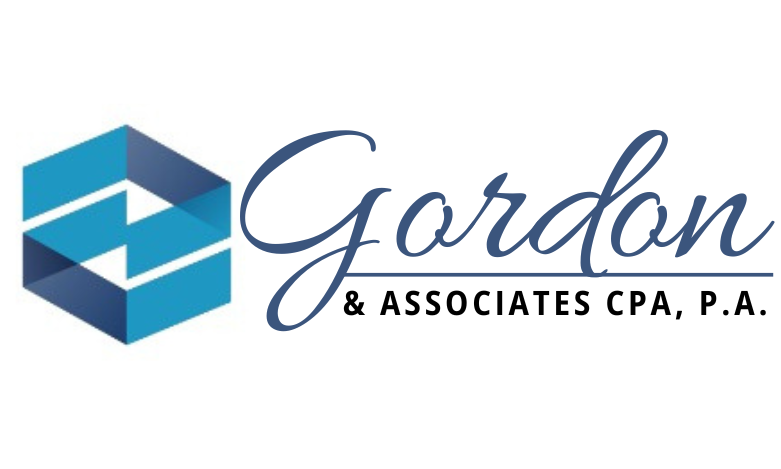The Role of Tax Planning in Building Long-Term Wealth

Building long-term wealth involves more than just saving and investing—it requires strategic tax planning. Taxes can take a significant chunk out of your income, investment returns, and estate if not managed carefully. By implementing effective tax planning strategies, individuals and businesses can minimize tax liabilities, maximize savings, and accelerate their journey toward financial security. Here’s how tax planning plays a pivotal role in building and preserving long-term wealth.
What is Tax Planning?
Tax planning is the process of analyzing your financial situation and applying strategies to minimize tax liability while ensuring compliance with tax laws. Unlike tax preparation, which focuses on filing taxes for the previous year, tax planning is proactive and forward-looking.
Key Goals of Tax Planning:
- Reduce taxable income
- Optimize tax credits and deductions
- Strategically time income and expenses
- Preserve wealth for future generations
1. Reducing Taxable Income
One of the most effective ways to build long-term wealth is to reduce taxable income, which directly lowers your tax liability. Tax planning helps you achieve this by leveraging deductions, exemptions, and exclusions.
Strategies:
- Maximize Retirement Contributions: Contributions to tax-advantaged accounts like 401(k)s, IRAs, or SEP IRAs reduce your taxable income.
- Claim Business Deductions: For business owners, expenses like office rent, equipment, and travel can lower taxable income.
- Utilize Depreciation: Real estate investors and business owners can use depreciation to offset income.
Example:
Contributing $20,500 to a 401(k) in 2023 reduces taxable income by the same amount, resulting in significant tax savings.
2. Tax-Advantaged Investment Accounts
Tax planning ensures that you make the most of tax-advantaged accounts, which are essential tools for wealth building.
Popular Tax-Advantaged Accounts:
- Traditional IRA/401(k): Contributions are tax-deferred, meaning you don’t pay taxes until you withdraw in retirement.
- Roth IRA/401(k): Contributions are made with after-tax dollars, but withdrawals are tax-free in retirement.
- Health Savings Account (HSA): Triple tax advantages—contributions are tax-deductible, earnings grow tax-free, and withdrawals for medical expenses are tax-free.
Tip: Diversify between traditional and Roth accounts to balance taxable income during retirement.
3. Managing Investment Taxes
Investment growth is a critical component of wealth-building, but taxes on capital gains, dividends, and interest can erode returns. Tax planning helps minimize these impacts.
Key Strategies:
- Hold Investments for Over a Year: Long-term capital gains are taxed at lower rates than short-term gains.
- Tax-Loss Harvesting: Offset capital gains by selling underperforming investments at a loss.
- Invest in Tax-Advantaged Vehicles: Municipal bonds, for example, offer tax-free interest income.
Example:
If you sell stocks at a $5,000 loss and another at a $5,000 gain, the losses offset the gains, resulting in zero taxable capital gains.
4. Leveraging Tax Credits
Tax credits directly reduce your tax liability, making them more valuable than deductions. Tax planning identifies credits that align with your financial situation.
Common Tax Credits:
- Child Tax Credit: Reduces tax liability for parents.
- Energy-Efficient Home Improvements: Credits for installing solar panels or energy-efficient HVAC systems.
- Education Credits: For tuition and other qualified education expenses.
Tip: Unlike deductions, tax credits are dollar-for-dollar reductions, so prioritize claiming eligible credits.
5. Estate and Succession Planning
Preserving wealth for future generations requires careful estate planning to minimize estate taxes and ensure a smooth transfer of assets.
Strategies:
- Use the Gift Tax Exclusion: Gift up to $17,000 per recipient annually without incurring gift taxes (2023).
- Set Up Trusts: Trusts can reduce estate taxes and provide greater control over how assets are distributed.
- Leverage Step-Up in Basis: Passing appreciated assets like stocks or real estate to heirs can reset their cost basis, reducing capital gains taxes.
Tip: Work with an estate planner to navigate complex rules and optimize your strategy.
6. Timing Income and Expenses
Tax planning includes strategies to time income and expenses in ways that optimize tax outcomes.
For Individuals:
- Defer income to a lower-tax year if possible.
- Prepay deductible expenses like mortgage interest or property taxes in high-income years.
For Businesses:
- Delay invoicing or accelerate expenses to manage taxable income.
- Invest in equipment before year-end to claim deductions or depreciation.
7. Staying Updated on Tax Laws
Tax laws frequently change, and staying informed is essential to take advantage of new opportunities and avoid penalties.
How to Stay Compliant and Informed:
- Work with a CPA or tax advisor to stay current on federal, state, and local tax regulations.
- Use tax software or subscribe to updates from trusted financial institutions.
Example:
The Tax Cuts and Jobs Act introduced significant changes to deductions, credits, and tax brackets. Being proactive allowed many taxpayers to adjust their strategies for maximum savings.
8. Planning for Retirement Withdrawals
In retirement, managing withdrawals from various accounts strategically can minimize taxes and preserve wealth.
Key Strategies:
- Withdraw from taxable accounts first to allow tax-advantaged accounts to grow.
- Convert traditional IRAs to Roth IRAs during low-income years to reduce future tax burdens.
- Manage Required Minimum Distributions (RMDs) to avoid penalties.
Conclusion
Tax planning is a critical component of building and preserving long-term wealth. By leveraging deductions, optimizing investments, and staying proactive with estate planning, individuals and businesses can significantly reduce tax burdens and accelerate wealth accumulation. Don’t wait until tax season—start planning today to take control of your financial future.
Ready to maximize your wealth through strategic tax planning? Contact us today for expert advice tailored to your unique needs.
Subscribe to our newsletter to receive our latest blog directly to your inbox.




